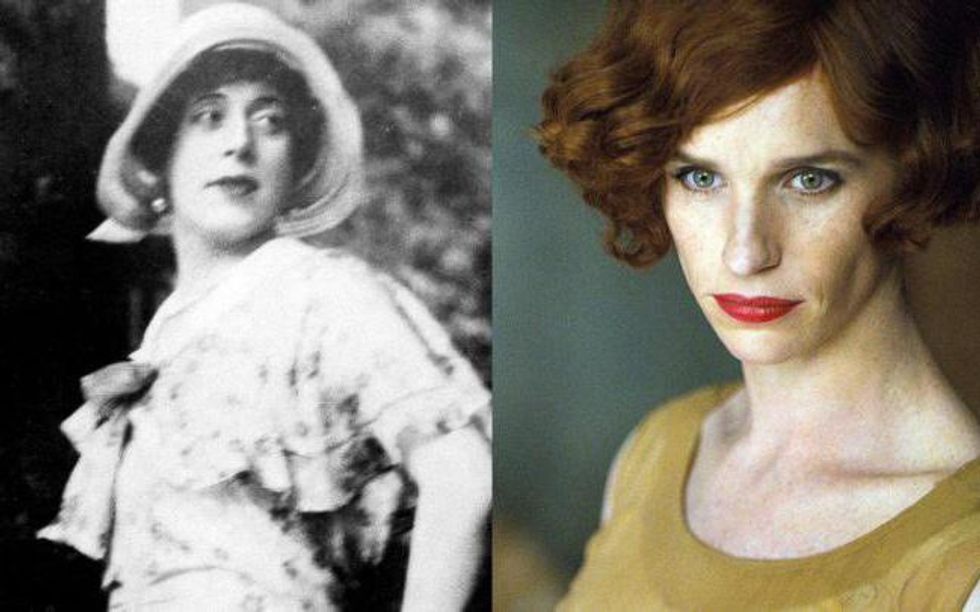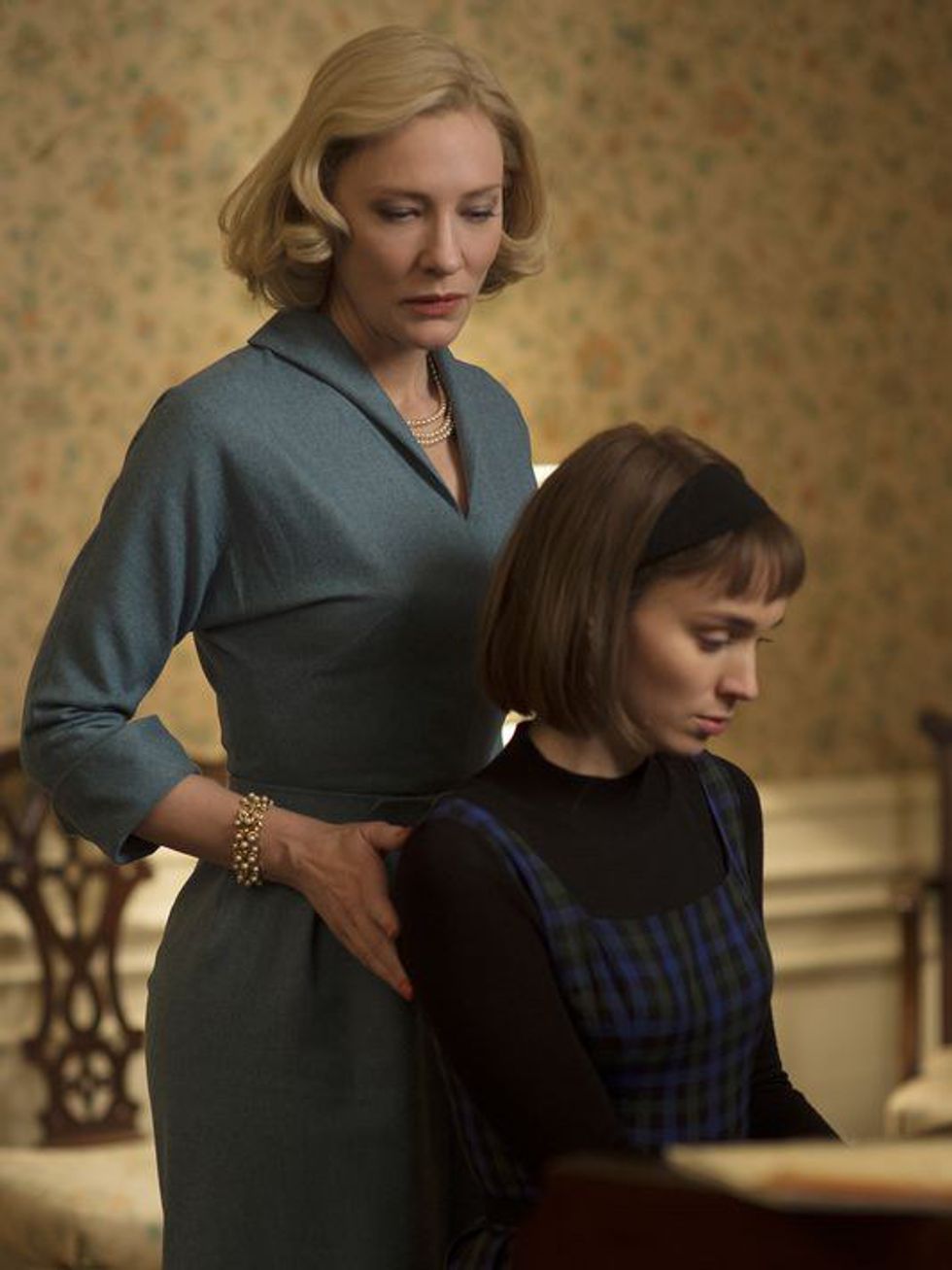When talk of racially inaccurate casting (cough, whitewashing) swirled around the production of a live-action rendition of "Mulan," I was reminded of yet another Hollywood representation controversy: Why aren't queer actors cast to play a role written for queer characters?
(See: Jared Leto as Rayon in "Dallas Buyers Club," Eddie Redmayne as Lili Elbe in "The Danish Girl," Heath Ledger as Ennis Del Mar and Jake Gyllenhaal as Jack Twist in "Brokeback Mountain.")
A couple of these Oscar-grabbing movies over the last decade or so have drawn criticism for casting well-known straight actors, rather than giving the more obscure, yet non-straight, actors a chance to showcase their talent. Having queer actors play main roles in headlining, highly-anticipated movies is more important than the average viewer might think; it is monumentally important in terms of representation. Even I used to think that an actor should be cast solely on the basis of their talent; their sexuality should not be a factor, even if it is a relevant characteristic of the role they audition for. But I've come to realize that it's not enough that the character on the screen is gay, but that the man or woman behind the role is as well. It tells the audience and the industry that queer talent is present and valuable.
The issue was brought up during a Q&A session with the producer of "Carol," Christine Vachon, after a handful of Wellesley film students finished a screening. This elegant, deeply emotional lesbian romance set in 1950s America was directed by Todd Haynes and produced by independent film company Killer Films - also known for "Far From Heaven" and "Kill Your Darlings." "Carol" is a love story between Therese, a young photographer and shop worker (played by Rooney Mara), and Carol, a soon-to-be-divorced mother fighting for the custody of her daughter (played by Cate Blanchett). In addition to the phenomenal acting and gorgeous set design, the film has been praised for its poignant depiction of non-straight characters and queerplatonic friendships, particularly those of gay women, in a time where such a thing was hardly ever acknowledged, or treated as a treatable illness. The two women fall in love, run away together, and suffer the consequences of defying society's norm. Perhaps the biggest plot twist is that (spoiler warning) it has a happy ending! Neither of them die and it is implied that Therese returns to Carol in the final scene.
Predictably, many Wellesley College students showed up to watch "Carol" when it was sponsored by the Cinema and Media Studies program, especially when it was announced that Vachon would be attending to answer questions.
The Q&A started with the usual suspects: How long did it take to film? (Most feature films complete shooting in 23 days.) Is Killer Films producing any other movies of "Carol's" caliber coming out soon? (Direct your attention to Tali Shalom Ezer's upcoming film "Mercy" starring Ellen Page and Kate Mara.) Does the producer still receive fanart and fanfiction from fans of the movie? (Short answer: yes.)
And then, inevitably, the question: Why isn't there more of an effort to cast queer actors to play queer characters?
Vachon's answer is not verbatim, but below is as much as I could transcribe on the fly:
"To be frank, without big stars such as Rooney Mara and Cate Blanchett, the film never would have been greenlit, it just wouldn't have been made. [Representation of queer actors in the film industry] is still very much an evolving discussion...I know the business side very well: The nature of the film business requires big stars. With "subversive" movies like these, I have to decide between a very limited audience to ever see the film or a very wide audience. Carol would never have gotten the recognition it did at the Oscars if cast with lesser-known LGBT actors."
Vachon, who is a member of the LGBTQIA+ community herself, laments this unfortunate fact as a necessary evil of filmmaking in America. The trade-off is mathematical: a production company must choose between having gay actors for representation points, or casting straight actors in order to reach a larger audience, where it can ultimately influence a greater number of people. She still holds out hope for the future -- especially with the rise in popularity of "gay movies" and the scores of television and movie actors who are just now coming out publicly. But it's still not nearly as mainstream as it needs to be to get our community the visibility it so desperately needs.
It's also worth noting that the problem of representation is partially a paradoxical one: queer actors would gain clout in the industry, would become better known and more visible if they were given big-budget roles to begin with. So while I do not by any means agree with Hollywood's reasoning, I can certainly understand it.
Vachon goes on to answer other questions, mostly pertaining to the production of the film itself (again, not verbatim): [Advice for fellow filmmakers, Ms. Vachon?] "Because the world is constantly shifting, the world of filmmaking requires you to think entrepreneurially. This might mean rethinking grad school, since it's more practical to approach content creation hands-on, especially if you have a smartphone. And don't be afraid to borrow from great filmmakers -- Todd Haynes does it all the time." [Example, Ms. Vachon?] "Several aspects of the narrative structure of the film, especially the penultimate dinner scene, was heavily inspired by the 1945 romantic drama Brief Encounter."
Support movies like "Carol" and "Mercy." Show Hollywood that we value queer talent, and show them with your money. I know that right now, there are so many different kinds of fights to be fighting, that there are causes that are far more deserving of your time, attention, and money. But, next time you watch a movie that is 'critically acclaimed,' be sure to consider how diversity of the cast and crew behind any given movie can be just as important as what's shown on screen.
That being said, "Carol" is a damn good movie.




























